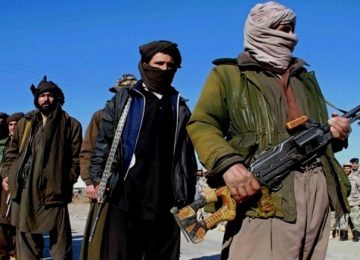It’s never too late.
Afghan President Ashraf Ghani recently sent a passionate and strong message to the Taliban to establish peace in their war-torn nation. Addressing the second ‘Kabul Process’ conference, Ghani offered to recognize Taliban as a legitimate political group provided they sit across the table for talks to end 16 years of war.
He didn’t stop there! Ghani also buttressed his offer with solid confidence building measures to get the process rolling. Ghani said the negotiations should be started with a ceasefire after which they can work on a list of Taliban fighters to be freed from Afghan prisons.
Ghani also announced that his government would issue passports to the Taliban leaders and their families, allow Taliban to open office even in Kabul and would work with the international community to remove sanctions against the Taliban leaders.
It is not clear whether this offer was made by Ghani after consultations with the United States; but it is undoubtedly the strongest ever peace overture from the Afghan government that contained very specific confidence-building measures.
In the past, there have been several offers for talks to the Taliban by the Afghan government but most of these invitations were nothing more than rhetoric which were never followed up with any strong action.
It is also interesting that Ghani’s offer came a few weeks after Taliban invited United States to hold direct talks; though that offer was outright rejected by the U.S. President Donald Trump.
Ironically, the Afghan government and Taliban offers came against the backdrop of a series of attacks in Kabul in recent weeks in which hundreds of people were killed. Taliban claimed responsibility for some of these deadly attacks.
In one of worst attacks to hit Kabul, a Taliban suicide bomber penetrated a highly guarded center in January and detonated an explosives-laden ambulance, killing more than 100 people and wounding at least 235.
These attacks were followed by strongly-worded condemnations from Ghani calling Taliban as “terrorists”.
Taliban too have in the past balked at suggestions for peace talks saying that they would not join peace process in the presence of foreign forces in Afghanistan.
But the main question is what prompted this sudden change of heart on both sides to begin a peace process to end the long-running war.
In a surprising move, the Taliban last month held out assurance that it would provide full security to the protect and secure the Turkmenistan, Afghanistan, Pakistan and India (TAPI) gas pipeline in areas under its control.
Some international media outlets interpreted Ghani’s invitation as the ‘last ditch, desperate gamble’ by the Afghan government to make peace with Islamic militia which has extended its clout over most of Afghanistan. However, the growing threat of Daesh could be one of the reasons that forced the warring sides to turn to negotiating table.
In his address at the conference attended by representatives of more than two dozen countries, Ghani himself made a veiled reference to Daesh threat by saying that dangers to his country are mounting as “the enemies of Afghanistan are transnational criminals”.
“The Afghan government and the international community have analyzed the scale and scope of the threat and drafted numerous resolutions and agreements to address the threat, but consensus is still needed to take coordinated action among states to counter the threat”, said Ghani.
Ghani did not elaborate on his comments but he seems to be referring to the differences between the United States and Russia on how to deal with this threat.
Last month, Russian Foreign Minister Sergey Lavrov said thousands of Daesh militants have reportedly taken refuge in Afghan areas bordering with Central Asian states and Pakistan but Washington has turned a blind eye to this alarming development.
“…we are alarmed because unfortunately, U.S. military and NATO coalition in Afghanistan try to silence or deny these facts to give an impression that it [Daesh] is not a serious threat,” he said while addressing a news conference with Pakistani Foreign Minister Khawaja Asif.
Asif also warned against “unchecked proliferation” of Daesh in Afghanistan.
It is quite encouraging to see regional countries closing their ranks to counter the Daesh threat though it may take some more time to convince U.S. to help evolve a joint strategy to deal with it.
A serious effort to resolve Afghan conflict could serve as a stepping stone towards countering Daesh as any move to stabilize war-ravaged Afghanistan would shrink space for the brutal militant group to set up sanctuary in the country.
Irrespective of whether Ghani’s initiative succeeds or not, the move is undoubtedly a step in the right direction and it needs to be fully supported by the regional countries.
Foreign Minister Asif’s statement extending full support to the Afghan government’s move must be appreciated and the two governments need to take concrete steps to turn this offer into a reality.
The writer is a senior journalist based in Islamabad and could be reached at zeesh.haider14@gmail.com
© Center for Research and Security Studies (CRSS) and Afghan Studies Center (ASC), Islamabad.








